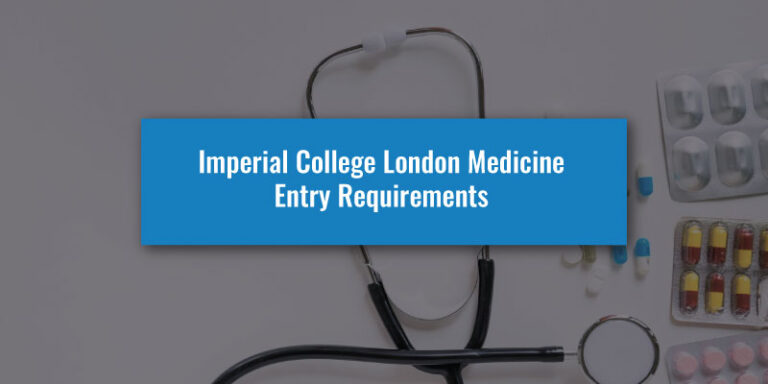The four pillars of medical ethics are the principles that guide medical professionals in their interactions with patients and the decisions they make regarding patient care. A firm understanding of these pillars is essential for any medical school applicant and medical practitioner.
A large portion of your studies will be taken up by Anatomy, Biology and Chemistry, but it is important to remember that most jobs in the field of medicine have a major human element to them as well. Communication, compassion and ethics all play a big part in the day-to-day tasks of any medical practitioner and are just as important as the science behind medicine.
The ethical code that must be followed by all medical practitioners can be summed up in four points – The 4 Pillars of Medical Ethics. There are more complexities and nuances than this that can change between scenarios, but these basic pillars must be considered during every decision you make in medicine.
This understanding has to start from the beginning of your application, with admissions tests like the UCAT testing you on your situational judgement and interviewers posing ethical questions or scenarios for you to evaluate or discuss. Therefore, you need to study these pillars now to avoid getting caught by any of these questions. Let’s start this guide off by defining what these four pillars are.
What Are the 4 Pillars of Medical Ethics?
As the name suggests, there are four main principles to consider when making a medical decision. These are:
1. Autonomy
This principle recognizes that patients have the right to make their own decisions about their healthcare, based on their own values and beliefs. Medical professionals should respect these decisions and provide patients with the information they need to make informed choices.
2. Beneficence
This principle emphasises the importance of doing good for the patient. Medical professionals should act in the best interests of their patients, providing them with treatment and care that will promote their health and well-being.
3. Non-Maleficence
This principle is commonly referred to as the “do no harm” principle. Medical professionals have a duty to avoid causing harm to their patients and to minimize the risks associated with any treatment or procedure.
4. Justice
This principle recognises the need to treat all patients fairly and equitably, regardless of their circumstances or individual characteristics. Medical professionals should strive to ensure that resources are distributed fairly and that all patients have access to the care they need.
While this may all sound quite simple, there are a lot of issues and problematic situations that can arise when trying to follow these four pillars. These difficult scenarios are what interviewers will focus on, so let’s take a deeper look at each of these pillars.
Master all medical ethics questions, plus every other interview question, with UniAdmissions.
With over 95 hours of guided study (including One-To-One Tuition, Mock Interviews, Intensive Courses and Comprehensive Materials), our expert Interview support gets you fully prepared for your medicine interview and beyond.
Discover our Oxbridge Medicine Interview Programme by clicking the button below to enrol and triple your chances of success.
Medical Ethics: Autonomy
Autonomy is the idea of self-governance, that an individual has the right to make a decision and act under a self-chosen plan. In medicine, this specifically refers to the fact that patients have the right to deny any treatment that is offered to them or choose between various treatment options available. Medicine is no longer paternalistic – doctors cannot force patients to undergo particular management options, and patients have the right to decline treatment themselves.
Note that although patients have autonomy, they cannot demand treatment that is not offered as an option – for example, a patient doesn’t have the right to receive treatment that is not licensed.
Importantly, if a patient lacks capacity, which means that they have a disorder of the brain or mind which means that they cannot understand, retain, weigh up or communicate their decision, their autonomy can be overruled by a doctor or a person with legal authority over the patient. For example, for a patient with dementia, a doctor can overrule their decision to refuse treatment as long as the doctor is acting in the patient’s best interests.
Let’s put this in the context of a medical ethics interview question:
“An adult patient, who is a Jehovah’s Witness, has refused a blood transfusion during a major bleed. What should the team do?”
In this scenario, the medical team must respect the patient’s autonomy and religious beliefs as a Jehovah’s Witness, which prohibits blood transfusions. However, the team should still take appropriate measures to address the patient’s major bleed and ensure their well-being.
It would first be important to ensure the patient has the capacity to make this decision. As the patient has made this decision due to established religious reasons, they do likely have the capacity, so alternate options will need to be explored. Some suggestions you could give include:
- Communicate with the patient: If they are conscious and of sound mind, you should speak with the patient to make them fully aware of the situation and the consequences of refusing treatment. If the patient has recieved all necessary information and has full capacity but still does not consent, then these wishes must be respected by the medical team.
- Provide alternative treatments: The medical team can explore alternative treatments, such as administering medications to promote clotting or performing a surgical procedure to control the bleeding. The team should discuss these options with the patient and obtain informed consent.
- Monitor the patient closely: The team should monitor the patient's vital signs and closely monitor their condition to ensure that they are stable and not experiencing any complications.
- Consult other medical professionals: If necessary, the team can consult with other medical professionals, such as a hematologist or a bioethicist, to explore other treatment options and obtain guidance on how to respect the patient's religious beliefs while providing appropriate medical care.
Download our FREE 90-Page Interview Starter Guide
Our 90-page E-Book is filled with expert Interview Advice, common interview questions and first-hand interview experiences from successful Oxbridge applicants.
To access all this for free, just enter your name and email address and you’ll be sent the guide directly to your inbox.

Medical Ethics: Beneficence and Non-Maleficence
On the surface level, these two pillars go hand-in-hand like two sides of the same coin. The idea of Beneficence is that doctors should maximise the benefits that medical care has on a patient.
Meanwhile, the principle of Non-Maleficence is the partner to this – the idea of ‘doing no harm’, that is, trying to minimise the harm that medical intervention does to a patient. This means acting in the patient’s best interests, which might not always be as clear as you would assume.
Of course, causing active harm to a patient for any reason is strictly forbidden, but you may find cases where Beneficence and Autonomy contradict each other or times where the assumed safest or most beneficial decision causes unexpected harm due to unforeseen risk.
These are all cases that could have life-threatening consequences for your patient and career-threatening consequences for you and your colleagues, so no decision can be taken lightly. On top of this, you may also have to contend with the wishes of the patient or those with authority over the patient, such as family members. This next interview question explores this further:
“Sally is an 86-year-old lady with terminal breast cancer that has spread to her bone. Her daughter wants the primary tumour removed but her son thinks it’s best that she comes home without the operation – what should you do?”
In this question, you could talk about the fact that doctors must act in the patient’s best interests with beneficence – here, you want to assess whether the operation will do her any good. It would be important to assess her physical health and fitness for surgery and to understand how beneficial the surgery will be for her prognosis.
Given that you don’t want to cause more harm – non-maleficence – and the likelihood that doing surgery is likely to be more damaging than good, it is likely that you would not recommend surgery.
Lastly, despite mentioning the opinions of the daughter and son, it is most important as a medical practitioner to assess Sally’s thoughts on the situation and act on her wishes, should she have the capacity to make a rational choice herself. Despite being 86 years old, this does not necessarily mean she does not have the autonomy to decide for herself, so ensure you think about omitted information that may be important.
Medical Ethics: Justice
Justice in a medical context relates to the fair treatment of all patients cared for by medical practitioners. This prevents the discrimination of any patient for any reason, ensuring that all decisions are made based on the health benefits of the patient or the patient’s own Autonomy.
Again, this seems like a simple thing to consider at first, as no patient should be denied treatment that could benefit their health for any reason other than the potential risks outweighing the benefits. Of course, no medical professional should ever act out of racism, sexism, homophobia or any other form of hate/personal bias, but there are scenarios that can be less clear-cut.
Although a medical professional’s main priority is the care of their patient, medical justice also relates to ethical decisions that affect the society around the patient, as well as their own safety and the safety of their colleagues. For example, life-saving support would still need to be provided to someone suspected to be dangerous. However, risk assessments would need to be made quickly to determine the best chance of providing said support while keeping medics and any members of the public safe from potential violence.
A large part of medical justice comes down to patient rights. These rights include topics we’ve already discussed, such as the right to make decisions and the right to receive treatment regardless of who they are, but there are more rights that need to be considered.
- Right to be treated with Dignity and Respect: All patients must be treated with dignity, no matter the situation they may be in.
- Right to information: Each patient has the right to certain information. This includes comprehensive details on any procedures of tests that have been recommended as well as access to their full medical records.
- Right to privacy and confidentiality: Private information about a patient cannot be shared with anyone without the patients own clear consent, so they have the right to keep any information confidential between them and their medical professional. There are exceptions where this is overruled, typically when a person or people are in immediate danger.
That last right, confidentiality, is the subject of our last example question:
“An HIV+ patient has not discussed their diagnosis with their partner – what should you do?”
As a healthcare professional, there are several steps you can take to address the situation while adhering to the rights of the patient:
- Respect the patient's confidentiality: As a healthcare professional, you have a duty to protect your patient's right to confidentiality. You should not disclose the patient's HIV status to anyone without their consent.
- Encourage disclosure: While respecting the patient's confidentiality, you can encourage the patient to disclose their HIV status to their partner. Explain to them the benefits of disclosure, including the opportunity to receive emotional support and the possibility of reducing the risk of transmission.
- Offer support and resources: You can provide the patient with information on resources available to help them disclose their status, such as counseling services or support groups. You can also offer to facilitate a conversation between the patient and their partner, if both parties are willing.
- Discuss risk reduction: Even if the patient does not disclose their HIV status to their partner, you can discuss risk reduction strategies with them. These may include consistent condom use, the use of pre-exposure prophylaxis (PrEP) by the partner, and viral suppression through antiretroviral therapy (ART).
It is important to approach the situation with sensitivity and empathy, while also prioritising the health and well-being of both the patient and their partner. However, providing they are of sound mind, the patient’s decision is their own to make.
Conclusion
Medical ethics will be one of the most common things you get asked about in your interview, so understanding the cornerstones of this topic early is key. Although these pillars are only the basics of what you will be learning at medical school, getting a head start will allow you to answer any ethics questions with confidence.
With that being said, you should also be aware that no interviewer is expecting a perfect answer from their applicants. When you are presented with these kinds of scenarios, you are rarely expected to provide a definitive solution, as more often than not, no definitive solution exists. What interviewers want to see is that you have considered all of the pillars of ethics and have an understanding of what the patient is entitled to in the scenario.
Be sure to practice regularly with mock interview questions and ensure you know how to answer all types of medical interview questions. We have plenty more free guides to help you through your whole application so be sure to have a look! If you would like to know how you can access UniAdmission’s expert interview support programme, speak with our Admissions Team today to discover how you can enrol and triple your chances of success.
Early interview preparation is essential for performing well in your medicine interview. Get started today with UniAdmissions.
Our Medicine Interview Programme is designed to give you the highest chance of a Medicine offer at the Interview stage. Your expert tutor will work with you based on your specific subject and personal circumstances to craft a strong Interview strategy that truly gives you an advantage that can make the difference between an offer and rejection.
Discover our Medicine Interview Programme by clicking the button below to enrol and triple your chances of success.








